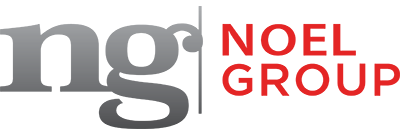Interviews can be a nerve-wracking experience. However, considered presentation and preparation is half the work done before you even get there. Here are some pointers on how to make the procedure run smoothly.
Appearance
- Employers want to see signs of an organised personality so choose a smart tidy outfit that you feel comfortable wearing.
- It is usually wise to err on the side of caution and dress conservatively. However, if you are applying for a fashion and design job, you should show a visual flair.
- Do not be afraid to show a touch of originality, but do not dress out of character.
- Avoid sports gear or trainers.
- Make sure your hair is clean and well-groomed. Long hair should be tied back.
- Nail polish should be fresh – not chipped.
- Avoid wearing too much jewelry – keep it subtle.
- Shoes should be polished. Do not wear high heels unless you can walk in them.
- Avoid strong perfumes/aftershave or deodorants.
Preparation
- Before the interview try and find out the basics about the company. You can do this by checking to see if they have a website, looking in the library where there are usually a number of research publications on companies or ringing and asking if there is written information available on the company or organisation.
- Refresh your memory about your previous employment and your work history.
- Think carefully about your achievements and how to describe them.
- An interviewer wants to know if you are the right person for the job by finding out your strengths and weaknesses. They are not there to trip you up or embarrass you.
On Arrival
- Double check the address. Plot out your route the night before. Arrive early. Give yourself plenty of time to find a car parking space and get into the building without rushing.
- Check your appearance in the mirror before the interview to make sure you are presentable.
- Have a spare copy of your CV and any original references or academic records.
- Greet the interviewers as Mr and Mrs or Ms (listen out for the title) and their surname. Only call them by their first names if they tell you to do so.
- Shake hands firmly.
- If you have a tendency to perspire, give yourself time to freshen up before meeting the interviewer.
Interview Guidelines
- Do not sit down until you are offered a chair.
- Do not chew gum, or enter the interview smelling of cigarettes or alcohol.
- Do not answer questions with a simple yes or no. Explain yourself further as much as possible without waffling. Do not answer a question without thinking about it. It is okay to sit and consider an answer.
- Do not lie. Answer as truthfully and fully as possible.
- Do not make derogatory remarks about your previous employers.
- Do not swear in the interview even if the interviewer does. This could be a trap.
- Do not interrupt or talk over the interviewer. Wait until he/she is finished speaking.
- Do your homework and find out as much as you can about the business or organisation before you enter the interview.
- Leave the interviewer with a very strong sense of what you can offer the job and why you are interested in a job with them.
- Smile, be attentive and listen, without fiddling.
- Ask them to repeat their question if it was not clear the first time around.
- Maintain eye contact when you talk, but do not stare at them.
- Do not indulge in small talk at the end of the interview unless the interviewer initiates it.
- Do not be discouraged if you are not offered the job at the end of the interview.
